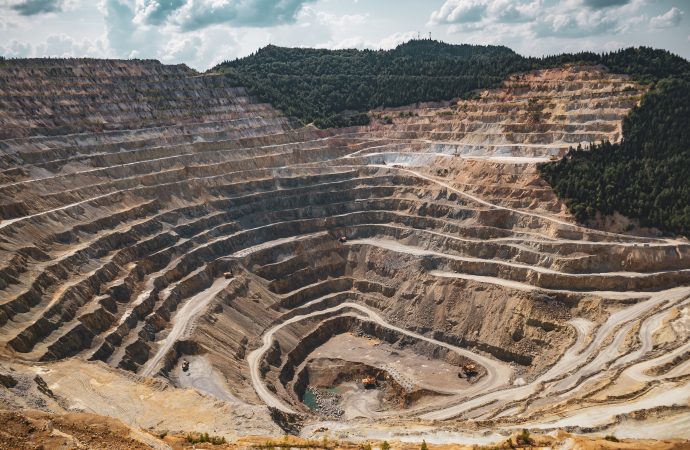Introduction The dynamics of global trade and geopolitics have long been influenced by countries endowed with vast reserves of essential resources, often referred to as commodity superpowers. However, in recent years, a shift in this landscape has given rise to new players that are poised to reshape the balance of power in global markets. This
Introduction
The dynamics of global trade and geopolitics have long been influenced by countries endowed with vast reserves of essential resources, often referred to as commodity superpowers. However, in recent years, a shift in this landscape has given rise to new players that are poised to reshape the balance of power in global markets. This article delves into the emergence of these new commodity superpowers, their resource dominance, and the potential ramifications for the world economy.

Photo by Julia Volk: https://www.pexels.com/photo/salina-turda-in-turda-romania-5206830/
The Changing Landscape of Commodity Superpowers
Traditionally, nations like Saudi Arabia, Russia, and the United States have held sway as commodity superpowers due to their control over oil, natural gas, and other vital resources. Yet, the rise of new contenders on the global stage is challenging this established order. Countries such as Brazil, Australia, and even certain African nations are gaining prominence as key players in the commodities market. This shift is driven by factors such as technological advancements, changing consumption patterns, and the exploration of previously untapped resources. As a result, new avenues for economic growth and influence are opening up for these emerging commodity superpowers.
Emerging Players and Their Resource Dominance
Brazil, with its abundant agricultural land and agribusiness prowess, has become a major force in the global food market. Its exports of soybeans, beef, and poultry have surged, transforming the country into an agricultural commodity giant. Similarly, Australia’s vast mineral wealth, including iron ore and coal, positions it as a linchpin in the global industrial supply chain. Furthermore, certain African nations are capitalizing on their reserves of rare earth metals and minerals essential for modern technologies. These resources are becoming increasingly crucial in industries like electronics, renewable energy, and telecommunications, granting newfound importance to these African countries in the global commodity arena.
Implications for Global Trade and Geopolitics
The rise of new commodity superpowers has significant implications for global trade dynamics and geopolitical relationships. As these emerging players exert greater influence over commodity markets, traditional powerhouses may need to adapt their strategies to maintain competitiveness. This shift could lead to recalibrations in international trade agreements and diplomatic relations. Moreover, the growing resource dominance of these new players may spark geopolitical tensions, as countries vie for access to critical resources. Struggles for control over supply chains and distribution networks could reshape geopolitical alliances and rivalries, potentially altering the global balance of power.
Sustainability and the Future of Commodity Power
In an era marked by increasing environmental consciousness, the concept of commodity power is evolving beyond resource abundance. The new commodity superpowers are not only assessed by their reserves but also by their commitment to sustainable resource management and ethical practices. Countries that prioritize environmental protection, renewable energy, and responsible resource extraction are likely to garner greater international respect and influence. The future of commodity power also hinges on diversification. As technological advancements continue to disrupt traditional industries, nations that invest in research, innovation, and the development of new resources will be better positioned to retain and enhance their commodity influence in the long run.
Conclusion
The rise of new commodity superpowers heralds a transformative shift in the global economic landscape. Brazil, Australia, certain African nations, and other emerging players are wielding their resource dominance to reshape markets, trade dynamics, and geopolitics. As the world navigates through these changes, the criteria for commodity power are expanding to encompass sustainability and innovation, underscoring the need for nations to adapt and evolve in this rapidly shifting terrain.

















Leave a Comment
Your email address will not be published. Required fields are marked with *